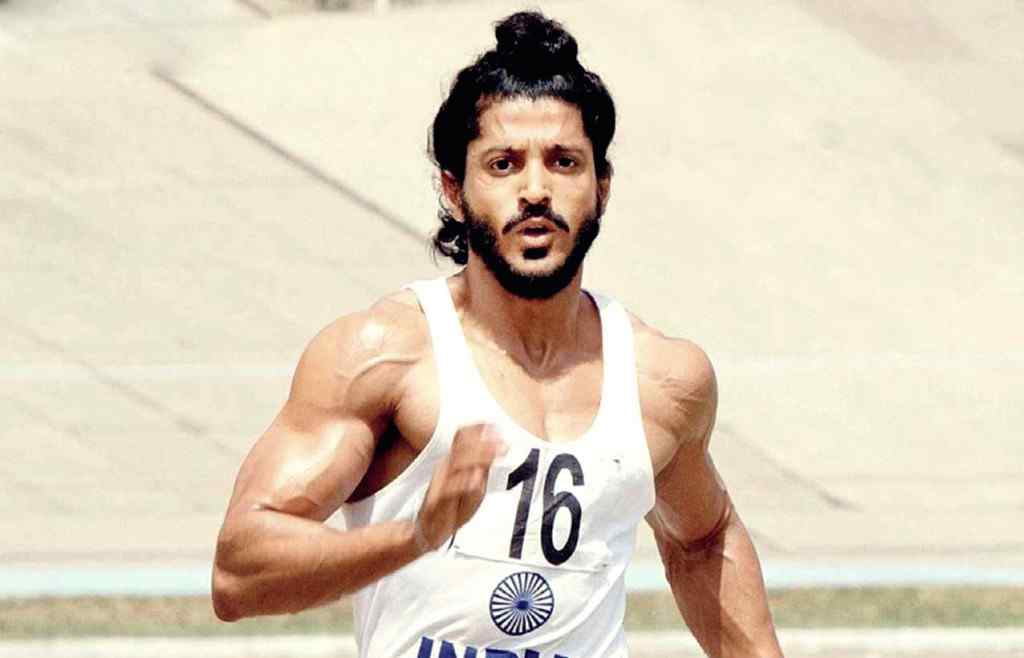

For example, a closeup of a hand holding a stopwatch occupies the right half of the screen, while Milkha breaks through the finish line again and again. Director Rakeysh Omprakash Mehra paces the story well and includes some clever shots to pack in as much information as possible. While her role in Milkha’s real life may have been important, scenes of her flirting with Milkha don’t move the story forward.Īpart from a few unnecessary scenes, the film earns its 188 minute runtime. Other scenes that could’ve been cut feature a beautiful Indian Olympic swimmer named Perizaad (Meesha Shafi). It could’ve been cut from the film without being missed. A country-western style dance number in an Aussie bar is awkward, and the song isn’t very good either. The abrupt transition into the new setting is perhaps meant to emphasize how out of place Milkha feels in a foreign country, but it just feels clunky. The trip to Australia is one of the few speed bumps in the film. Breeds does a super job, and her scenes with Akhtar are incredibly sexy. The consequences of their brief fling lead Milkha to rededicate himself to his training, setting up an impressive time-lapse jump rope sequence that highlights the amazing physical transformation Akhtar underwent for his role. Dutta is powerful in the film, particularly during a scene in which Isri and Milkha are reunited in a refuge camp.Ī third female influence in Milkha’s life is Stella (Rebecca Breeds), an Australian woman he meets at the 1956 Olympic Games in Melbourne. It’s just as important to Milkha to make his older sister, Isri (Divya Dutta) proud, since she raised him following the deaths of their parents. Kapoor and Akhtar share a sweet chemistry together. At the time, the army supplied the athletes for the Indian Olympic team, so Biro’s part in getting Milkha into the military is critical. His decision to join the army is spurred by a desire to impress a young woman, Biro (Sonam Kapoor). Though the film is primarily populated with male characters - Milkha’s friends, competitors, fellow soldiers, and coaches - women play a significant role in directing Milkha’s destiny. The significant events of Milkha’s life are told out of sequence, but flashbacks flow seamlessly from one time period to the next. The Army coach, Gurudev (Pawan Malhotra, who gives a touching performance), narrates Milkha’s history to his national team coach, Ranveer (Yograj Singh), and a government representative while on a train ride to Milkha’s home, where they hope to convince Milkha to change his mind and lead the Indian delegation to Pakistan. Those were the same words his national team coach yelled during the Olympics that caused Milkha to turn, expecting to see the swordsman on horseback that he ran from as a boy. The last words young Milkha heard his father say were, “Bhaag Milkha Bhaag!” (“Run Milkha Run!”). Rather, he blames Pakistan for the deaths of his parents thirteen years earlier, during the riots that followed partition. Milkha’s coach from his Army days explains that his pupil turned down the offer not out of embarrassment for having lost the race.

Milkha subsequently turns down an opportunity to lead an Indian delegation to Pakistan to compete in a friendly race, despite being India’s most famous athlete. Milkha Singh (Farhan Akhtar) leads the field in the 400 meters until he turns to look behind him, a move inexplicable to those watching the race. Bhaag Milkha Bhaag is a fine tribute to a man whose life deserves to be made into a movie.īhaag Milkha Bhaag begins at the 1960 Olympic Games in Rome. It’s delightful to come across a personal story that is totally fresh, at least to audiences outside of India. American audiences are used to seeing biographies of famous people whose histories we already know: Abraham Lincoln, Jackie Robinson, etc.


 0 kommentar(er)
0 kommentar(er)
